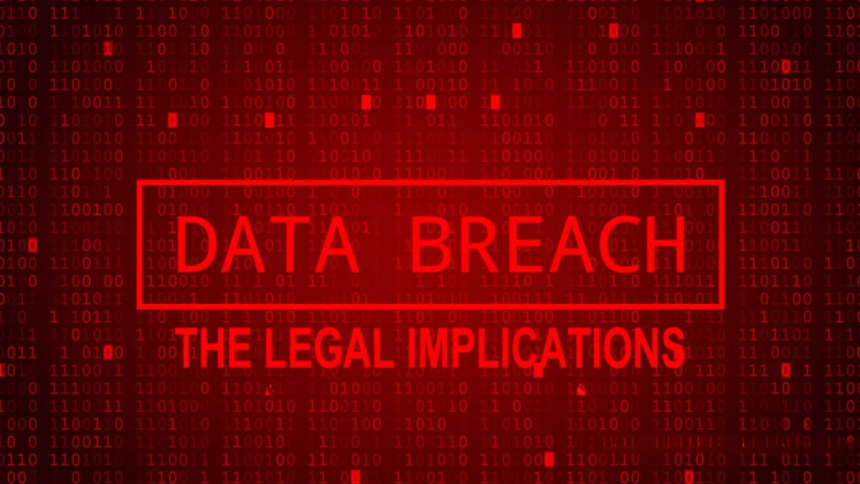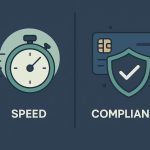Introduction
In the digital era, information is money, and personal information is one of the most profitable. Organizations gather and retain confidential data, including names and addresses, credit card details, and medical records. But unfortunately, this also makes them prime targets for cybercriminals. Data breaches are increasing alarmingly, with millions losing their privacy annually. The effects of a data breach are dreadful: identity theft, financial loss, emotional distress, and loss of trust in the institutions that did not manage to keep your data safe.
But I want you to understand you are not without trouble. Legal rights assist consumers in reacting and recovering after a data breach. Being aware of your rights may provide another level of security, as you can take measures in case your rights are violated, due to negligence, inadequate cybersecurity measures, or malicious attempts. Here, the article will expand on what a data breach is and its effects on the victims, the legislation in place to offer you protection, and the recourse you can take to legal action in cases where your privacy has been invaded.
1. What Is a Data Breach?
Data breaches are the theft or unauthorized access of confidential data, usually by businesses, healthcare, financial institutions, or government organizations. Such access can be through malicious hacking, employee mistake, ineffective security systems, or even physical theft of devices. The data stolen may include social security numbers, credit card details, usernames, passwords, and medical records.
Dila Gokalp, Director at Homz, stated, “Although not all data breaches result in identity theft or fraud, the chances are high. The hackers can sell your data on the dark web or utilize it immediately to make purchases, obtain loans, or create new accounts in your name. It’s essential to notice a breach early so it doesn’t affect it. Yet, most victims only find out about the compromise weeks or months after the fact, by which point the damage has already been inflicted.”
2. Immediate Steps to Take After a Breach
If you received a notification that your information was involved in a breach, you can take steps soon to defend your identity and financial health. The initial step is to establish the validity of the notification. Next, reset passwords to compromised accounts, particularly when using the same passwords across platforms. Two-factor authentication is also a good idea wherever it is available.
Christie Lindstrom, Chief Marketing Officer at iGrafx, said, “Closely monitor your financial accounts and credit reports for suspicious activity. You can also put a fraud warning or credit lock on the main credit bureaus to block illegal access. The aftermath of many breached companies is providing victims with a free credit monitoring service or identity theft protection. Utilizing these benefits can mean early diagnosis and an extra sense of security.”
3. Understanding Your Legal Rights
“Data breach victims are entitled to particular legal rights based on their residency and the details of the breach,” explains Sarah N. Westcot, Managing Partner at Bursor & Fisher, P.A., a law firm nationally recognized for its work in consumer protection and class action litigation. “Medical information is safeguarded by federal laws such as the Health Insurance Portability and Accountability Act (HIPAA) and the Gramm-Leach-bliley Act (GLBA), which govern the actions of financial institutions. The Fair Credit Reporting Act (FCRA) provides such rights to consumers, including the right to dispute accurate information and place fraud alerts.”
Westcot adds, “Some states possess data protection laws, which might grant extra rights. As an illustration, California’s Consumer Privacy Act (CCPA) enables California residents to file suits against companies that cannot ensure sufficient protection of personal information. In other instances, the victims might qualify to be part of settlements of class action suits if the violation involved many individuals. To continue, you must know what laws apply to your case.”
4. When Can You Sue Over a Data Breach?
You can sue if the company that lost your data was careless with your information. For example, an organization that did not encrypt sensitive information, neglected apparent security breaches, or did not concentrate on industry best practices can be prosecuted in the court of law. The victims commonly sue for damages founded on economic loss, emotional suffering, or the amount they use to recover their identity.
Dr. Nick Oberheiden, Founder at Oberheiden P.C., added, “Class action suits are the norm regarding mega data breaches that affect Thousands or millions of individuals. Once this happens, the plaintiffs launch a suit against the organization in question, and whatever is settled is shared among the aggrieved persons. Class actions can divide individual settlements, but can also cause systematic changes and stricter data security regulations in the industry.”
5. How to Protect Yourself Moving Forward
Prevention is one of the most significant measures that should be taken after a data breach. Make all the passwords strong and different, and change them regularly. Invest in good antivirus and firewall software, and be careful about the personal information you provide online. It is better not to click on the links of suspicious sites or open unknown attachments, as this can create a backdoor for new attacks.
Gerrid Smith, Chief Marketing Officer at Joy Organics, asserted, “It is also good to know your rights and monitor changes to privacy legislation. Subscribe to the Federal Trade Commission (FTC) or your state attorney general’s office to get notified of data breaches and legal changes. With the proactive approach, you will be less vulnerable to future attacks and rest assured that you will be ready if your information is stolen again.”
Conclusion
Data breaches are not digital accidents but severe occurrences that might impact your wallet, status, and sleep. As a consumer, your best defense is to know your legal rights. From learning how to identify the indicators of a violation to suing the responsible parties when needed, you can take some measures to prevent the careless attitude of individuals and institutions and defend yourself.
We live in a world where data is constantly being collected and stored, and it is crucial to keep an eye out. Familiarizing yourself with these responses and the available laws that can be used to prosecute you can give you back your privacy and limit the harm done by cybercriminals and irresponsible corporations. The fact that your privacy is compromised does not mean that your rights are gone; they are just ready to be applied.
Lynn Martelli is an editor at Readability. She received her MFA in Creative Writing from Antioch University and has worked as an editor for over 10 years. Lynn has edited a wide variety of books, including fiction, non-fiction, memoirs, and more. In her free time, Lynn enjoys reading, writing, and spending time with her family and friends.















